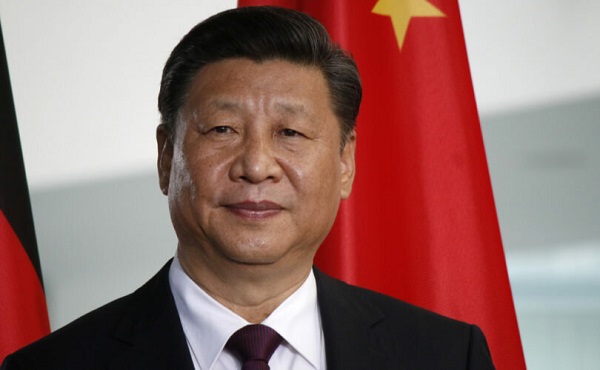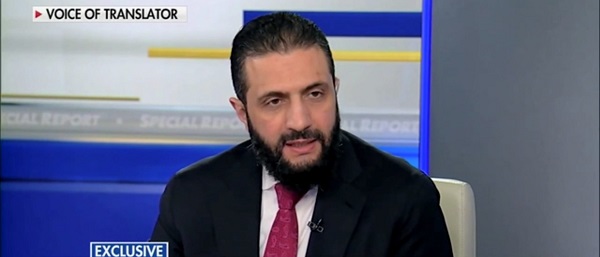International
New U.S. Intelligence: ‘Endemic’ CCP Corruption, Organized Crime, and Graft Tied to Xi’s Network

WASHINGTON — An explosive new disclosure by the Office of the Director of National Intelligence has pulled back the curtain on endemic corruption in the Chinese Communist Party—reaching the top echelons of power, including President Xi Jinping. Released as an unclassified document and drafted by ODNI’s National Intelligence Council, the report explains how graft, bribery, and political favoritism are an essential feature of CCP power structures, festering for decades, involving organized crime and factional struggles—even under Xi’s trademark anti-corruption campaign.
By publicly releasing these findings, U.S. officials are signaling a readiness to reveal what intelligence agencies have long documented but kept classified. Sources with knowledge of the matter indicate Washington appears increasingly willing to trace corruption and international money laundering directly to the Politburo, citing explosive cases such as a Western intelligence investigation that allegedly linked Xi Jinping’s cousin, Ming Chai, to a casino money-laundering junket in Australia.
In an era of sharply escalating tensions—spanning trade, technology, and territorial disputes—Washington’s move seems aimed at exposing internal vulnerabilities in Xi’s regime while also undermining the offshore money laundering and strategic corruption Beijing is believed to use for influence-building across the Western Hemisphere and the South Pacific. It offers American citizens a transparent glimpse into what the U.S. government views as key fault lines within China’s ruling party, as the world’s two most powerful states appear set on a collision course—driven in no small part by Xi’s urgent push to subsume Taiwan.
In a striking detail, the ODNI cites journalistic research, initially blocked by Bloomberg before eventually being reported by The New York Times in 2012, that tied immense family wealth to both then-Premier Wen Jiabao and the incoming President Xi. The Times reported that Wen’s immediate family controlled at least $2.7 billion in assets, while Xi’s siblings, nieces, and nephews collectively held more than $1 billion in business and real-estate holdings. Beijing promptly tightened its censorship apparatus in the report’s aftermath, curtailing foreign news outlets that delved into elite wealth.
“Xi may have urged family members to divest holdings as he came into power. However, industry research provides evidence that, as of 2024, Xi’s family retains millions in business interests and financial investments,” the ODNI report says. It adds that corruption cases reaching the highest levels—relying on open-source rather than classified U.S. intelligence—“shows corruption cases within the CCP Central Committee span leading officials overseeing a range of portfolios and projects.”
Among the examples cited is Zhang Wei, a Chinese businessman arrested in 2020 for “organizing, leading, and participating in organized crime; illegal detention; and illegal possession of firearms and ammunition,” before being found guilty the following year of illegally absorbing public deposits.
Another high-profile instance is Chen Gang, who was accused in 2019 of accepting over $18 million in bribes—some tied to his oversight of 2008 Beijing Olympics construction projects. More recently, in April 2024, Yao Qian, Director of the China Securities Regulatory Commission was investigated for “serious violations of discipline and law,” possibly connected to China’s Central Bank Digital Currency initiative.
The fact that Xi—who carefully cultivates an image of austere probity—has family members reportedly retaining millions of dollars in investments remains a deeply sensitive topic for Beijing. In highlighting these details, U.S. intelligence appears to be drawing attention to a broader governance model that incentivizes graft, even as Xi’s “tigers and flies” campaign claims to have taken down nearly five million officials since 2012.
The ODNI’s document underscores how Xi’s crackdown is not merely a legal imperative but also a party-directed instrument for punishing “political indiscipline and ideological impurity.”
“Although Xi has not used the campaign primarily to target his political rivals, a drive to eliminate competing power centers factored significantly into decisions made in the initial phases of the campaign. Early in Xi’s tenure, senior officials with ties to his predecessors were targeted with investigations and arrests,” the report says. “More significantly, political connections to high-ranking officials have not protected officials from prosecution, including those with close personal ties to Xi himself; the anti-corruption campaign has purged top officials considered loyal to Xi and who had risen under his patronage.”
Significantly, the ODNI highlights persistent corruption in the People’s Liberation Army—and a surge of high-level purges driven by Xi’s effort to consolidate control before the PLA’s target of full combat readiness by 2027, with Taiwan looming as the central focus. “In 2024, Xi stressed during a speech to military commanders that ‘the barrels of guns must always be in the hands of those who are loyal and dependable to the Party,’” the report states, adding that Xi’s emphasis on PLA loyalty “may also reflect concerns that corrupt practices will prevent the military from acquiring the capabilities and readiness he has directed it to achieve by 2027, in preparation for a potential conflict over Taiwan.”
The ODNI’s broader assessment emphasizes that corruption is not merely an occasional lapse but a systemic challenge to China’s governance, facilitated by centralized CCP power, a Party-centric concept of law, and minimal transparency. Studies suggest that corruption has persisted in China since its founding, intensified by rapid economic growth in the 1980s and 1990s, and has been so pervasive since 2000 that it threatens the very legitimacy of the regime.
The Bureau is a reader-supported publication.
To receive new posts and support my work, consider becoming a free or paid subscriber.
Daily Caller
Protesters Storm Elite Climate Summit In Chaotic Scene


From the Daily Caller News Foundation
Baton-wielding protesters stormed the COP30 summit in Belem, Brazil, on Tuesday, with video showing some dressed in indigenous outfits, according to multiple reports.
The COP30 summit is the 30th annual meeting of parties to the United Nations’ Framework Convention on Climate Change (UNFCC), an agreement to reach “net-zero” carbon emissions by 2050, according to the conference’s website. Video posted on X and aired by the BBC showed the protesters kicking doors and forcing their way into the building.
WATCH:
Dear Readers:
As a nonprofit, we are dependent on the generosity of our readers.
Please consider making a small donation of any amount here.
Thank you!
Two security guards were injured in the fracas, with one being taken out in a wheelchair while holding his stomach, Sky News reported.
Past COP summits have seen speakers propose taxes on the meat and dairy industry and “climate finance” initiatives for less-developed countries. The Biden administration signed on to a pledge to start “transitioning away from fossil fuels” at the United Nations COP28 climate summit on Dec. 13, 2023.
Democratic Gov. Gavin Newsom of California attended the summit, where he labeled President Donald Trump “an invasive species” and “a wrecking-ball president” who was “doubling down on stupid.” Newsom also announced an agreement between California and Nigeria, which was declared a “country of particular concern” due to persecution of Christians.
Daily Caller
Ex-Terrorist Leader Goes On Fox News, Gives Wild Answer About 9/11


From the Daily Caller News Foundation
Nearly 3,000 people died across New York City, Washington, D.C., and Shanksville, Pa. during the 9/11 attacks, according to the Pew Research Center. When asked directly on “Special Report with Bret Baier” if he regrets the attack, al-Sharaa distanced himself entirely from the event.
“I was only 19 years old, so I was a very young person, and I didn’t have any decision-making power at that time, and I don’t have anything to do with it,” al-Sharaa said. “And al-Qaeda was not present right then in my area. So you’re speaking to the wrong person about this subject.”
Dear Readers:
As a nonprofit, we are dependent on the generosity of our readers.
Please consider making a small donation of any amount here.
Thank you!
The Syrian leader then shifted the conversation.
WATCH:
“We mourn for every civilian that got killed, and we know that people suffer from the war, especially civilians who pay the price, a hefty price for the war,” al-Sharaa said.
President Donald Trump hosted al-Sharaa at the White House on Monday, welcoming the former al-Qaeda member who once fought U.S. forces in Iraq and served time in Abu Ghraib prison. The U.S. government removed al-Sharaa from its terror list just days before his meeting with Trump, according to CBS News.
Al-Sharaa, who led a rebel coalition that toppled Bashar al-Assad’s regime in December 2024 while heading the militant group Hayat Tahrir al-Sham, has since recast himself as a pro-Western reformer. Legacy media outlets have described his government as “moderate” compared to Assad’s rule.
The visit marks the first time a Syrian head of state has entered the White House since Syria gained independence in 1946, NPR reported. Trump, during a speech in Saudi Arabia, said in May that he would lift U.S. sanctions on Syria.
-

 armed forces2 days ago
armed forces2 days agoIt’s time for Canada to remember, the heroes of Kapyong
-

 Digital ID2 days ago
Digital ID2 days agoCanada moves forward with digital identification for federal benefits seekers
-

 Daily Caller2 days ago
Daily Caller2 days agoUS Nuclear Bomber Fleet Shares Fence With Trailer Park Linked To Chinese Intel-Tied Fraudster
-

 Alberta2 days ago
Alberta2 days agoSchool defunding petition in Alberta is a warning to parents
-

 espionage1 day ago
espionage1 day agoChinese-Owned Trailer Park Beside U.S. Stealth Bomber Base Linked to Alleged Vancouver Repression Case
-

 Daily Caller1 day ago
Daily Caller1 day agoLaura Ingraham Presses Trump On Allowing Flood Of Chinese Students Into US
-

 Business2 days ago
Business2 days agoLiberals refuse to disclose the amount of taxpayer dollars headed to LGBT projects in foreign countries
-

 Environment1 day ago
Environment1 day agoThe Myths We’re Told About Climate Change | Michael Shellenberger










